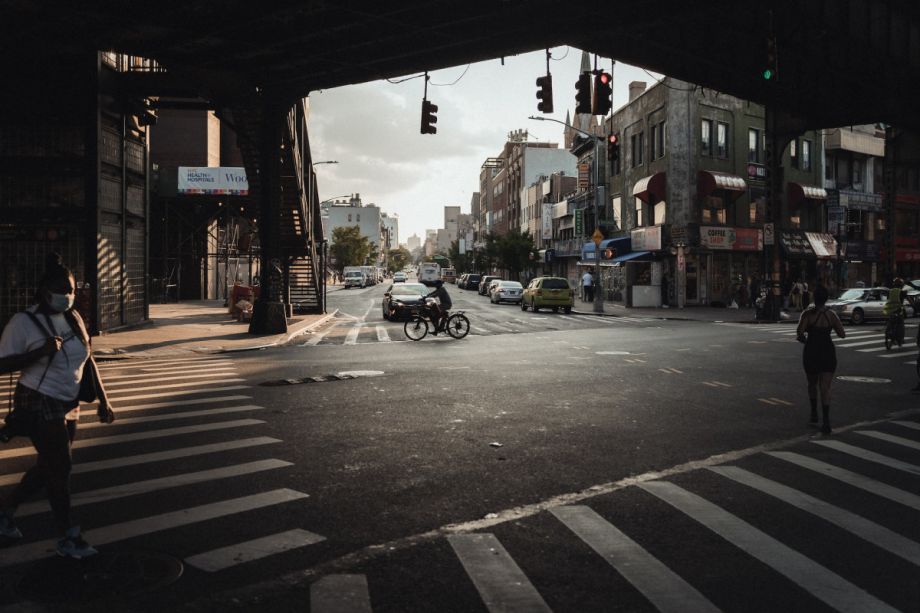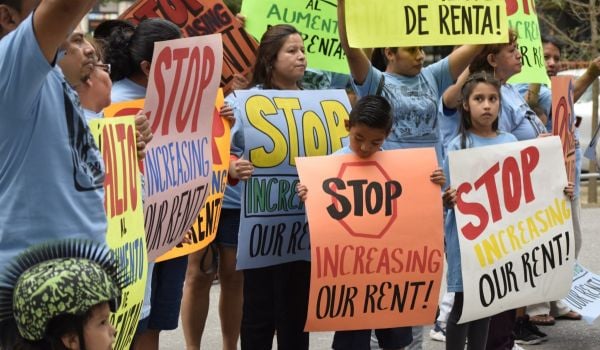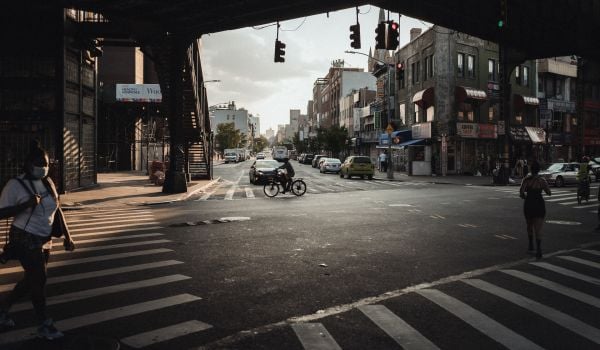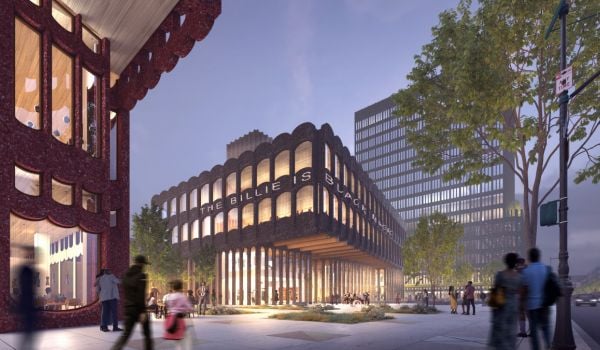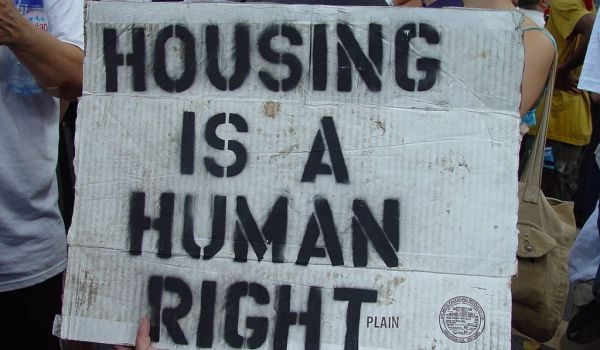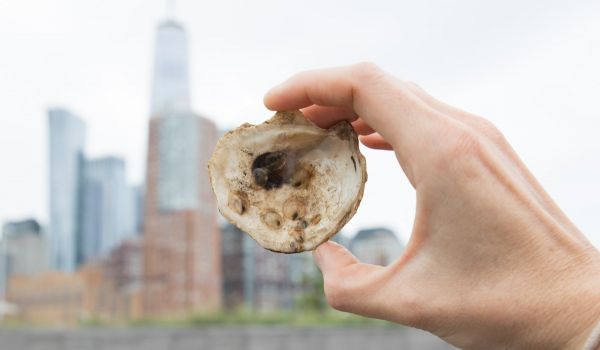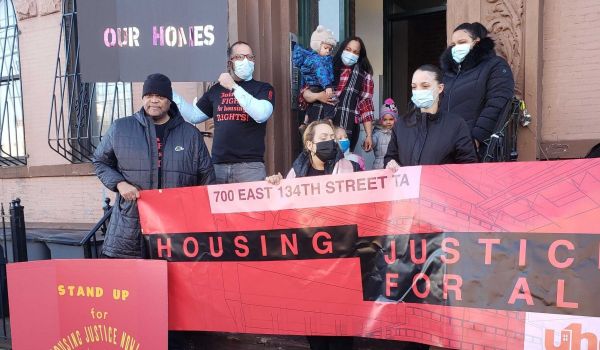New York City is inching closer to passing crucial legislation that would strengthen its community land trust movement. A bill that would give nonprofits and community land trusts the right of first refusal when a private landlord sells residential housing has enough co-sponsors to become law, as does another piece of legislation requiring the city to prioritize nonprofits when developing public land for public use.
These bills, along with a resolution calling for a statewide tenant opportunity to purchase act and a proposal to replace the city’s tax lien sale will receive a city council hearing on Feb. 23. Afterward, advocates hope the bills will be moved out of committee and receive a vote, according to the New York City Community Land Initiative and city councilmember Lincoln Restler’s office.
The suite of legislation, dubbed the Community Land Act, was the focus of a Feb. 2 town hall, which advocates used to galvanize support and answer questions. Brooklyn residents who gathered at Brooklyn Borough Hall also vented about the city’s slow-moving process for maximizing public land.
Several Brooklynites who spoke to Next City were struggling to get the city to address vacant lots blighting their neighborhoods.
One East New York resident who gave her name as Sharon R. told Next City she lives next door to a privately-owned vacant lot whose owner does not tend to the property. The spot has become a site for illegal dumping over time, and she has cleaned up the trash herself for the past ten years. She and her sister dipped into their 401Ks to make an offer for the lot, but the owner refused, keeping the lot empty while waiting for a higher offer. Sharon R. told Next City the lot has been racking up fines for all the trash, but the negligent owner was undeterred.
“I have pain all over my body, but I still go out there and I try to clean what’s on the side of my property,” Sharon R. told Next City.
One resident, C. Aaron Hinton, has been trying to turn a vacant, city-owned lot in Brownsville into a community garden since 2017, with no success.
“There was a vacant lot in our community and we noticed that there were not many youth-owned and operated spaces and Brownsville,” Hinton said during the question and answer section of the town hall. Hinton says after going to city council and the community board with a proposal, he and other organizers were eventually told the lot’s deed was moved to the Department of Housing Preservation and Development and to the Administration for Children’s Services, not the parks department, which handles the city’s community gardens.
“It seems like the city has its own agenda,” Hinton told Next City after the hearing.
While it may not have impacted Hinton’s ordeal communicating with the city, Intro 637, the Public Land for Public Good bill would prioritize community land trusts and nonprofit developers when the city develops its own land for public use. There are examples across the country of CLTs that own and run community gardens and urban farms.
Intro 637 has 31 co-sponsors in the City Council, according to council member Lincoln Restler, who was in attendance at the town hall and who introduced the legislation last summer. At least 26 votes are needed to pass bills in the council, and 34 votes constitute a veto-proof majority. The bill would bar the mayor from selling public land to a for-profit developer unless no qualified non-profit or community land trust applied.
“What we really need to ensure is that when the treasure of public land is being redeveloped, that we get deeply affordable housing, and that is not the record of the city of New York,” Restler told the audience at the town hall, referring to the city’s tendency to produce housing for higher income earners. He said that from 2015 to 2018, almost 80% of public properties that were redeveloped went to for-profit developers.
Albert Scott, president of East New York CLT said during the town hall that typically when city agencies like HPD have to get rid of land, it’s sold to private entities that can generate higher revenue than smaller or community-based entities.
“Nine times out of 10…they’re more inclined to give it to a for profit developer that’s not in the interest of community,” Scott told the audience.
The prevalence of vacant lots have long plagued New York City residents. A 2016 audit by the city comptroller’s office found that there were 1131 city-owned vacant properties across the five boroughs. In a report released last year, the East New York Community Land Trust found 255 city-owned vacant lots in the East New York neighborhood alone. The city can typically produce a deeper level of affordable housing on city-owned property as it doesn’t have to acquire land.
Potentially more transformational than the Public Land for Public Good Act is the Community Opportunity to Purchase Act (COPA), which would give qualified nonprofits and community organizations the ability to make the first offer when residential buildings go up for sale. Under the bill, introduced by council member Carlina Rivera, a residential building owner would be required to provide notice 180 days before selling a building. Within 60 days of giving notice, community groups can make it known that they want to make an offer, after which they have 120 days with an exclusive right to submit that offer.
The Community Land Act also includes a non-binding resolution calling on the state legislature and Governor Hochul to enact the statewide Tenant Opportunity to Purchase Act. TOPA works similarly to COPA, but it offers tenants in private buildings who form a legal entity the right of first refusal when their buildings go up for sale. NYCLI advocates were in Albany this week pushing the legislature to pass statewide TOPA legislation.
The movement has had success lately; after years of advocacy, the controversial tax lien sale was canceled. A majority of the city council pledged not to re-authorize the annual sale, in which homeowners with unpaid property taxes have their debt sold to often predatory third parties.
Before the Feb. 2 town hall, members of NYCCLI held a rally at city hall calling for the city to pass an alternative proposal to handle the city’s property tax debt. The movement has in the past proposed using community land trusts as receivers for properties with high property tax debt.
A new proposal released before the Feb. 2 press conference by a coalition including NYCCLI, Take Root Justice and Community Service Society suggests resolving the debt either through a payment plan; by placing the property into a community land trust; foreclosure and preservation as affordable housing with tenant protections; or foreclosure with the difference after debt paid back to the owner. No legislation is currently on the table reflecting the new tax lien proposal.
This article is part of Backyard, a newsletter exploring scalable solutions to make housing fairer, more affordable and more environmentally sustainable. Subscribe to our weekly Backyard newsletter.

Roshan Abraham is Next City's housing correspondent and a former Equitable Cities fellow. He is based in Queens. Follow him on Twitter at @roshantone.



